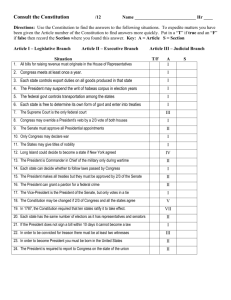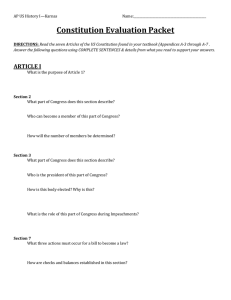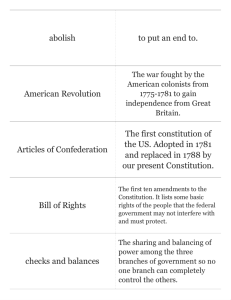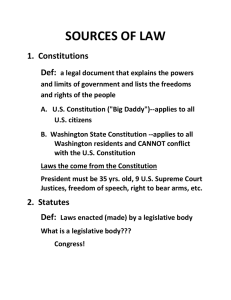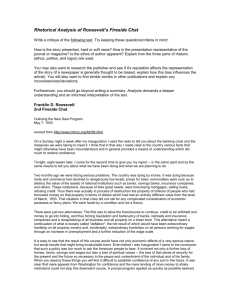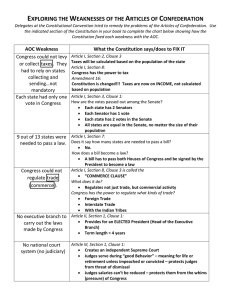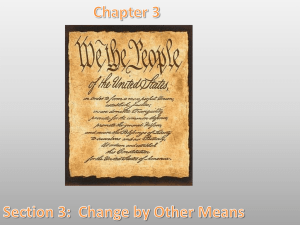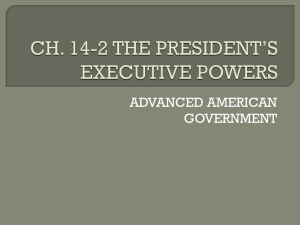Handout 7-3
advertisement
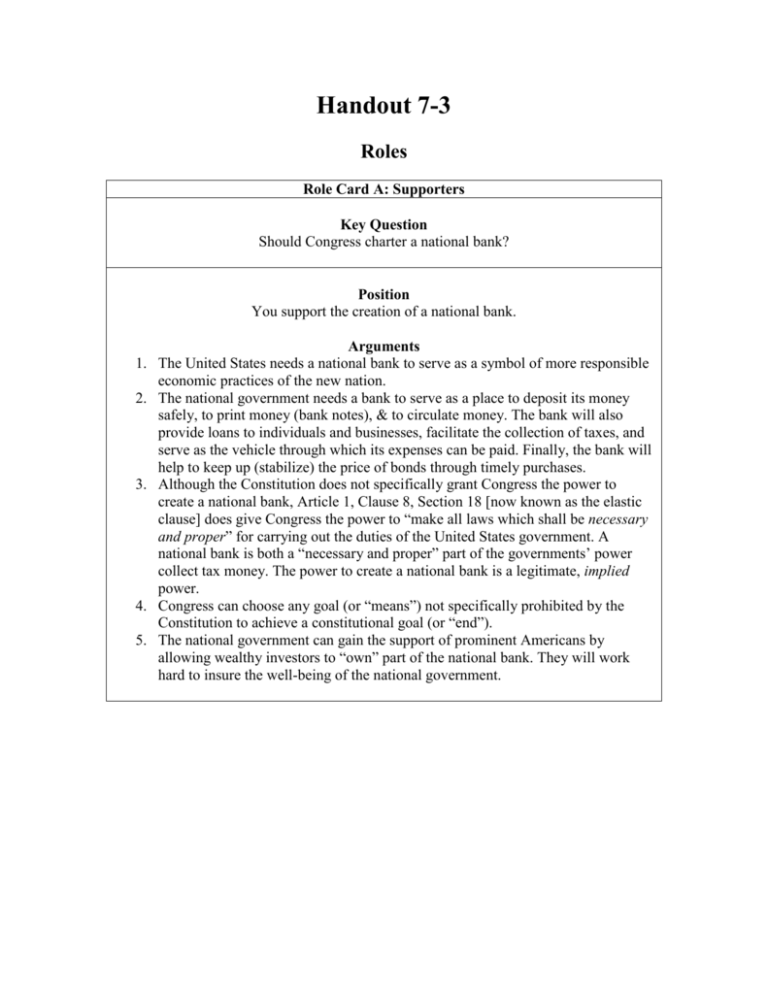
Handout 7-3 Roles Role Card A: Supporters Key Question Should Congress charter a national bank? Position You support the creation of a national bank. Arguments 1. The United States needs a national bank to serve as a symbol of more responsible economic practices of the new nation. 2. The national government needs a bank to serve as a place to deposit its money safely, to print money (bank notes), & to circulate money. The bank will also provide loans to individuals and businesses, facilitate the collection of taxes, and serve as the vehicle through which its expenses can be paid. Finally, the bank will help to keep up (stabilize) the price of bonds through timely purchases. 3. Although the Constitution does not specifically grant Congress the power to create a national bank, Article 1, Clause 8, Section 18 [now known as the elastic clause] does give Congress the power to “make all laws which shall be necessary and proper” for carrying out the duties of the United States government. A national bank is both a “necessary and proper” part of the governments’ power collect tax money. The power to create a national bank is a legitimate, implied power. 4. Congress can choose any goal (or “means”) not specifically prohibited by the Constitution to achieve a constitutional goal (or “end”). 5. The national government can gain the support of prominent Americans by allowing wealthy investors to “own” part of the national bank. They will work hard to insure the well-being of the national government. Role Card B: Opponents Key Question Should Congress charter a national bank? Position You are opposed to the creation of a national bank. Arguments 1. A national bank is not “necessary.” There are already at least 3 state banks that serve the needs of the nation. 2. The Bank Bill is another attempt to take power away from the states. The best check on power is at the local level. Power assumed by a distant national government is more difficult to keep an eye on. 3. The Constitution does not grant the national government the power to create banks. 4. It is a very dangerous idea to allow the national government to give itself powers. This is the first step toward tyranny! 5. The proposed 10th Amendment to the Constitution specifically states that powers not delegated to the national government are “reserved to the states.” This means that the power to create banks rests exclusively with the states. 6. It is not really a “national” government bank if 80% of the stock is owned by private, wealthy (& mostly northern) investors. Rich people will control government & the flow of the nation’s money. Northern investors (creditors) will control bank loan interest rates on southern farmers. 7. Under the “Compromise of 1790,” southerners supported the assumption plan in exchange for the north’s willingness to move the nation’s capital “temporarily” to Philadelphia then to a more southerly location on the Potomac River. Many southerners now fear that, if the bank bill passes and the national bank is set up in Philadelphia, that city’s “temporary” hold on the capital of the United States will become so entrenched that the capital will never be moved as scheduled in ten years.

